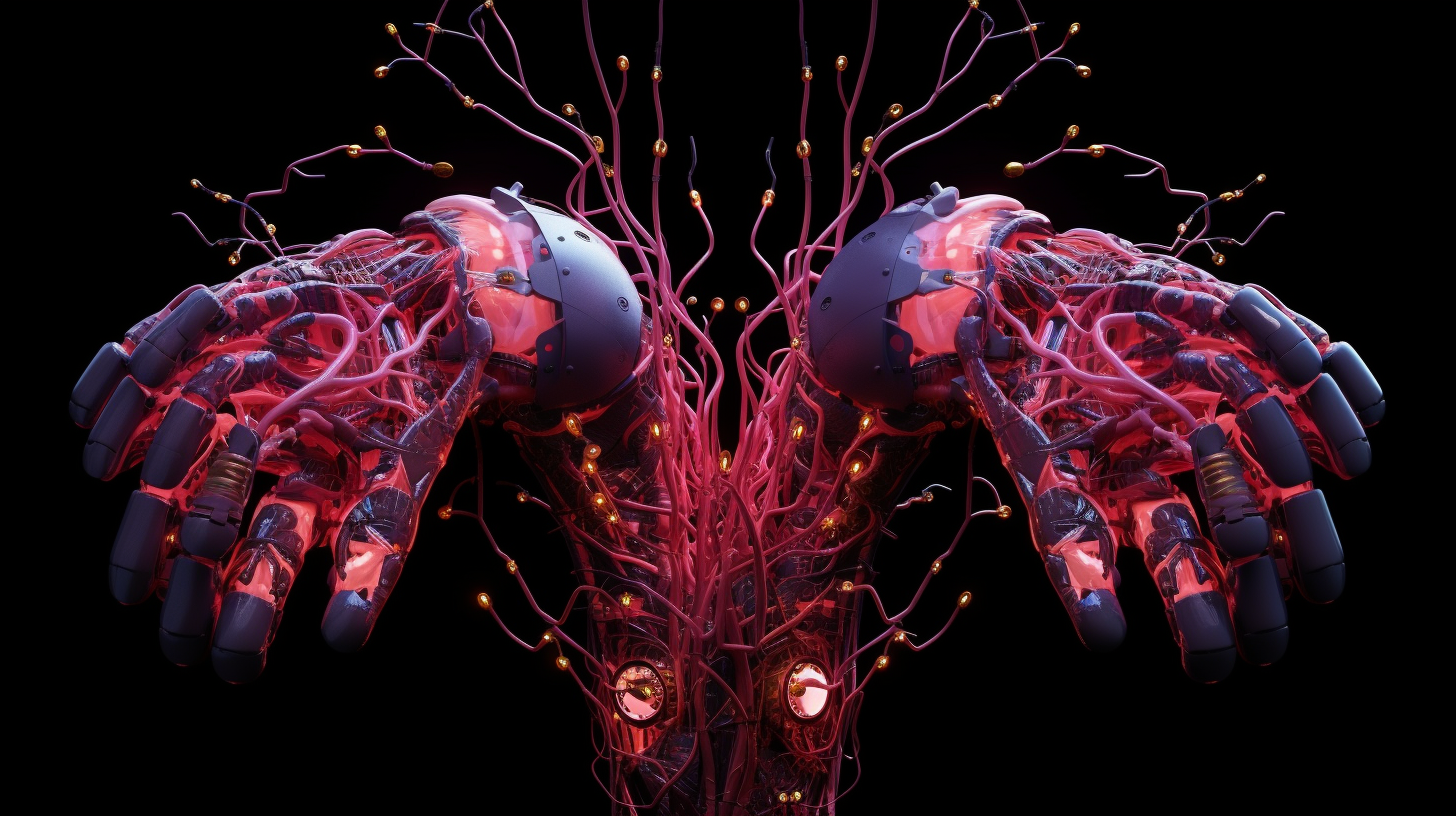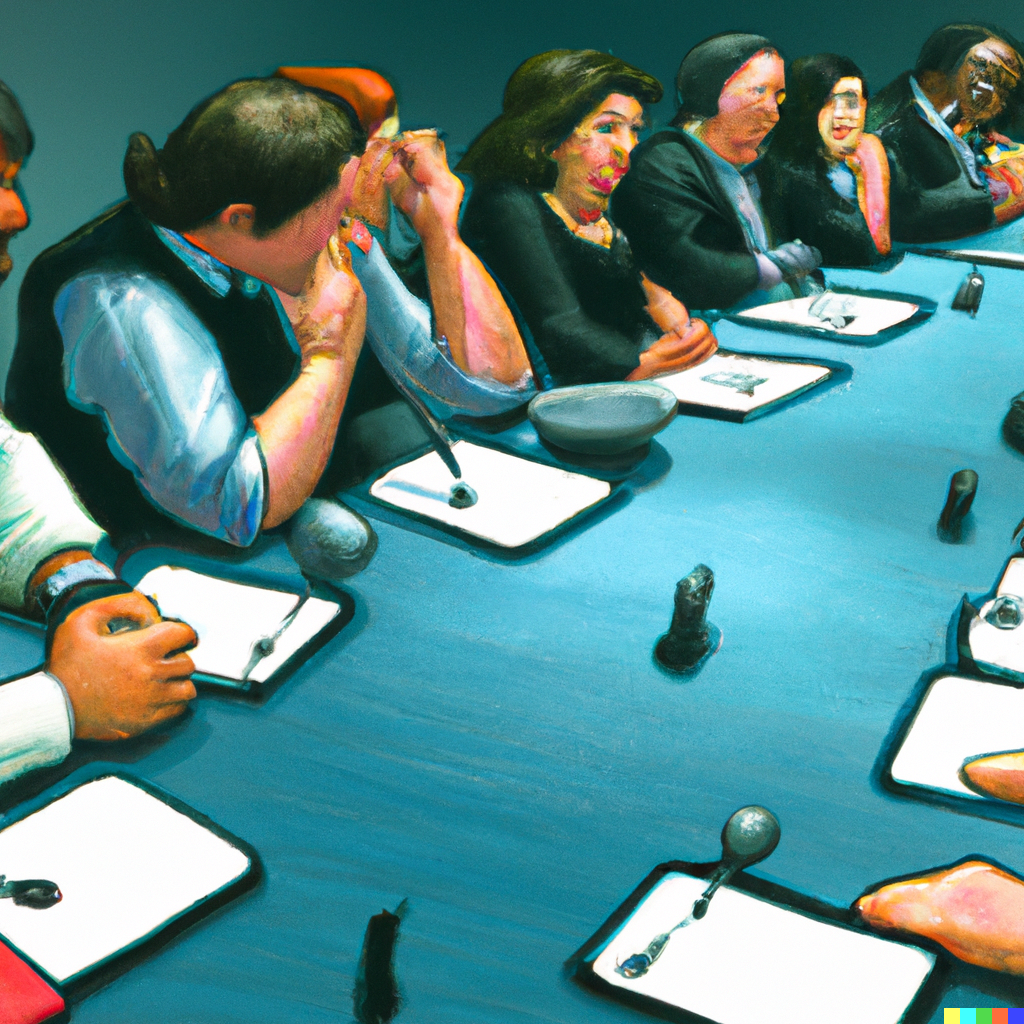The activity of perspective coordination is unreasonably effective at producing fantastic outcomes. In addition to creating legitimacy, it can offer a wider array of choices from which to select. The more diverse and courageous the set of people engaged, the wider array of choices. There’s a processing cost though. So, I’d like to believe that recent advancements in the processing power underlining artificial decision making can assist in helping people coordinate their perspectives faster and more completely. There’s a kind of brutal paradox embedded in all of this. It’ll take a bit of unpacking. Back in 2020, in The Humanity of Productive Meetings, I used an objective-based segmentation to explain the frustration each felt when experiencing ORID facilitation. Briefly: some[…]
Tag: human learning
How often are you asked to suspend disbelief as the price of admission? When should you? There are quite a few such contexts. Satire is my favourite. Plays are a close second. When you attend a play, you suspend disbelief for awhile. You know that the actors up on stage are engaging in a deception. They’re acting like something they’re not. And, for the enjoyment of all those around you, you keep your mouth shut about what’s happening up on stage. It isn’t a dialogue. It’s a one way broadcast. The same goes for sports entertainment: a brilliant category positioning statement if there ever was one. You know that the Macho Man Randy Savage isn’t literally the Macho Man Randy[…]
Perspective coordination can be a need, skill, solution, or a problem. Dawson (2020) defined perspective coordination as: “…a dynamic set of skills that supports human interactions by fostering mutual respect, nurturing creativity, expanding our minds, generating and developing ideas, leveraging conflict, and supporting healthy relationships. Robust collaborative capacity skills are a prerequisite for the development of perspective coordination skills, but you will also find that practices for building perspective coordination skills build collaborative capacity skills. Wheels within wheels.” Dawson, Theo (2020) “VUCA unpacked (3)—Perspective coordination” https://theo-dawson.medium.com/vuca-unpacked-3-perspective-coordination-13e722981ce6 Retrieved 1 Jan 2024 And Dawson provided a helpful concept map: Why might perspective coordination might be a need? It’s because you need people. If you had total independence, total freedom from dependents and their dependencies,[…]
I want to believe that the current generation of applications powered by Large Language Model (LLM) don’t represent the height of the state of the art for prediction machines and that no single firm will reach 80% market share and go onto dominate the generative era. I want to believe that the future is quite open, and that these early returns we’ve made in applied machine learning can compound. It’s because I want to believe so much that it’s worth questioning the assumptions. What might cause the future to become closed? Does OpenAI scan its API logs for good ideas? In 2023, a surge of founders developed skins for OpenAI’s ChatGPT. Some based their startup on enabling a user to[…]
I heard a belief on September 10, 2023 in Singapore: ~”When people lose money, they learn, they become more intelligent.” And I thought – huh. That’s kind of neat. I want to believe that. Is that true? Why do I want to believe that? I want to believe that it’s true because that would be awesome! It would mean diminishing returns for the wolves. Sure, a sucker is born is every second, but maybe a hundred are converted into skeptics every minute? If it was true, the world become progressively better. The population vulnerable to raiding, to fraud, to injustice, would be diminishing all the time. Sure, collectively, we would never get to zero, but it would approach some asymptote,[…]
Paul Graham wrote on May 9: “Observation suggests that people are switching to using ChatGPT to write things for them with almost indecent haste. Most people hate to write as much as they hate math. Way more than admit it. Within a year the median piece of writing could be by AI. … I warn you now, this is going to have unfortunate consequences, just as switching to living in suburbia and driving everywhere did. When you lose the ability to write, you also lose some of your ability to think. I don’t have the slightest hope of averting this switch. I often tell startups it’s safe to bet on laziness, and this is one of the biggest bets on[…]
“[A]n unrecorded decision may well be, indeed should be, considered as a sure sign that something fundamental has gone wrong with the decision-making process, that one should look for the presence of schemers who can impose projects on those who should know better; that one should also look for powerful external pressures reverberating through the decision-making process — pressures that cannot be resisted and lead to decisions for which there is no real acceptance of responsibility (and are therefore unrecorded). All of this serves to underline a point that is not stressed enough in the political science literature: decision-making is fundamentally a process for assuming responsibility for a proposed action.” Allison, Graham., Zelikow, Philip. (1999) Essence of Decision. 2nd Edition.[…]
It’s quite astonishing to think about just how much human knowledge exists, and just how diffuse its distribution is. It’s hard for any individual to tell. There are clues though. Knowledge is a major way that people create distinctions among one another, so it stands to reason that you can get a sense for how knowledge is distributed by looking at the distinctions people make amongst themselves. The knowledge of French and the knowledge of English creates a distinction between two rather large groups. The knowledge and application of ancient stories is another. The knowledge of how to shape a piece of wood, or stone, or glass used to be a pretty huge distinction. There are entire identities put in[…]
What you believe has a lot to do with who you believe. Who you believe, and who you don’t, can be represented as a network. Networks cause and reinforce trust. In this post, I’m going to try to make the connection between trust, society, and the delta variant of COVID. As I begin writing this post on July 20, 2021, I know about Delta Variant. We know that it’s burning through large populations of unvaccinated people. I think most people see it coming. And as the days passed, I watched increasing anxiety about what is to come. As a I publish this on August 1, there still isn’t much evidence of a mass urgency to vaccinate. So why the inaction?[…]
Benedict Evans writes fantastic writing prompts. He’ll make references to different first principles, and he’ll go onto build arguments out of them later. Sometimes I agree with them. Sometimes I don’t. He does provoke thought. One theme is the nature of people. On October 9, 2020, Benedict Evans wrote: We connected everybody, and that meant we connected all the bad people and the idiots, and our own worst instincts, and all society’s problems get expressed in software. Sometimes the Internet amplifies and channels that, but maybe sometimes the Internet is people. On April 23, 2021, Benedict Evans wrote: Old: if you make something idiot-proof, God creates a better idiot. New: if you create an Internet service that’s proof against assholes,[…]










